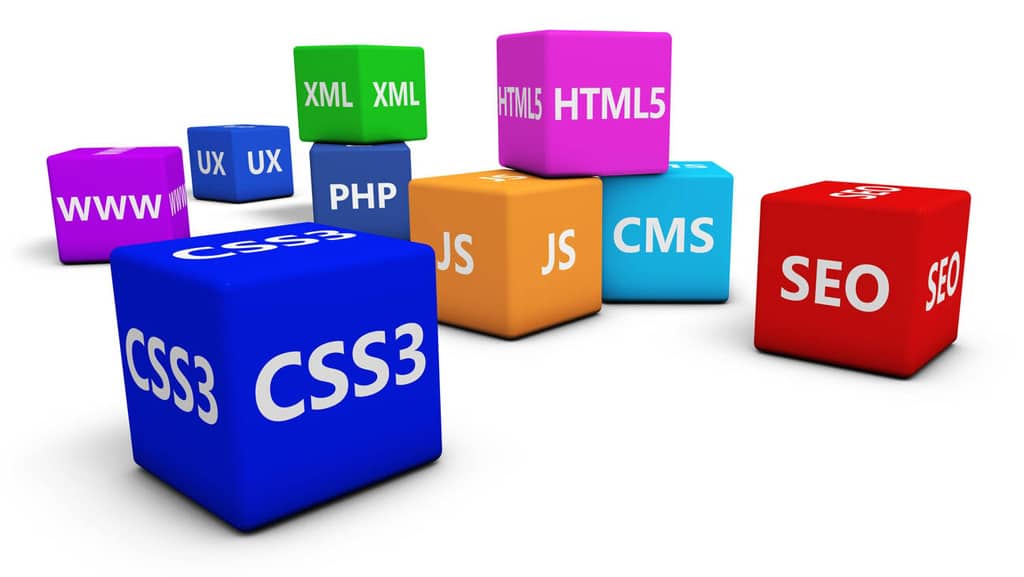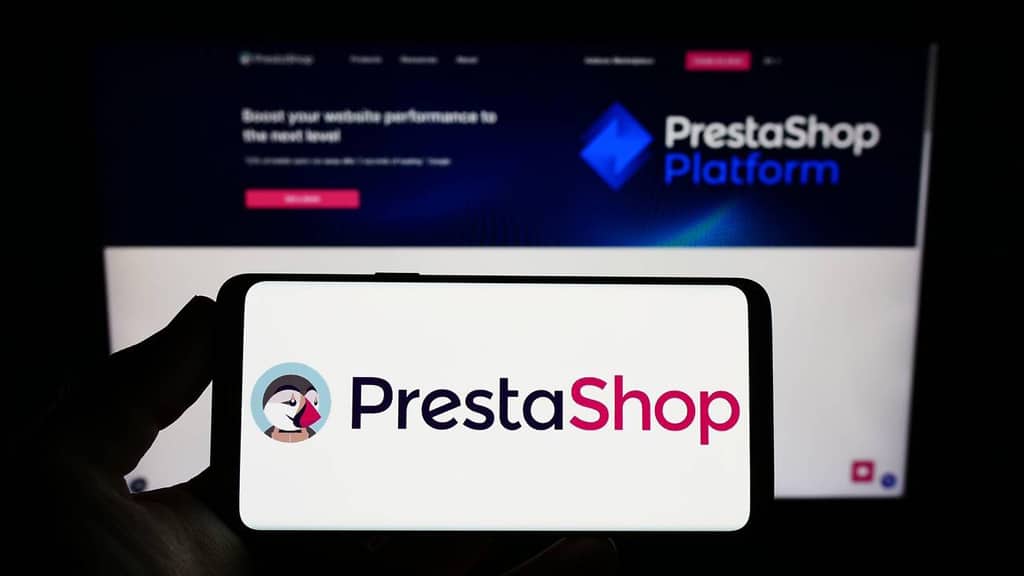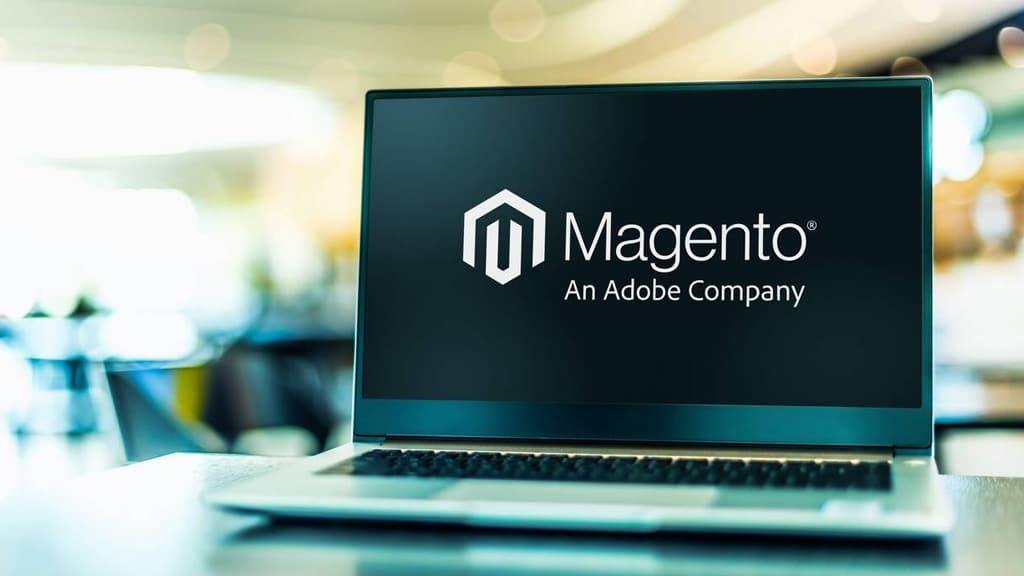What to Look for in an SEO-Friendly CMS: Key Features and Requirements
Strong website positions, easy detection by search engines, attracting targeted traffic and potential customers — these are indicators of the success of your business, which are achieved through skillful SEO-strategy. Making the optimisation of the site more effective will help properly selected CMS. What are the differences between each content management system from an SEO point of view? How to choose among the many existing platforms the most suitable one, taking into account your requirements for the content management system? Our article will provide answers to these questions and help you create conditions for optimal site customisation at all stages of its development.
Why CMS is important for successful SEO
First, let's understand what a content management system is and how it can benefit your website development.
A content management system (CMS) is a software application that helps you create and publish content, such as blog posts or website web pages. It also allows you to edit your site to improve its ranking, for example, by creating user-friendlier URLs or improving the site's structure. With a well-chosen CMS, the site can be set up quickly and easily with even minimal knowledge of coding and web development. Here's what you get:
- acceleration of the website creation process with the help of ready-made templates and modules;
- a user-friendly site structure;
- easily customisable design;
- functionality extension with ready-made plugins and modules;
- protection and regular updates;
- the ability to integrate external services (CRM systems, payment gateways, etc.);
- availability of inbuilt tools for SEO;
- scalability;
- increase of site ranking;
- saving time and money.
As you can see, with the help of CMS, there is every chance to improve and facilitate the conduct of business on the Internet.
SEO-Friendly CMS checklist

Before your choice falls on this or that content management system, you should test it for SEO friendliness. We offer you the requirements for a cms site, without the presence of which your resource has no chance to take a leading position. Here is a check-list of the main necessary characteristics that should possess your chosen content management system so that your site is optimised for SEO requirements:
- Fast page-load time
- Mobile adaptability
- Clean code and support for markup schemes
- SSL and HTTPS support
- XML sitemaps and redirect management
- Caching and CDN support for improved performance
- Editable meta tags and headers
- Customisable URLs
- Internal linking tools
- Image optimisation
- Multilingual capabilities
- Special functionality for your type of business
Having these features in your content management system will contribute to your site's visibility and high ranking. Let's discuss each item in more detail.
Technical SEO requirements
When choosing a CMS, make sure it has the necessary technical features from the SEO perspective. They are very important for search engines and a positive user experience when visiting the site.
Fast loading pages
The right CMS should help keep your website’s speed high, no matter how much content and traffic you have. A fast-loading page reduces visitors' wait time and increases their chances of interacting with the site before they desire to leave before it is fully loaded.
Make sure your CMS offers plugins to improve page speed, such as database cleanup, image compression, and browser caching.
Mobile Adaptability
Search engines scan and index your website from the perspective of a mobile user. As the number of people accessing the Internet via mobile devices is constantly growing, optimising your site for different types of devices becomes a necessity.
The chosen CMS should allow you to create a design adapted for mobile screens of different sizes and provide a convenient and intuitive interface on all devices. Many CMSs are equipped with libraries with layouts and templates for mobile adaptation. Note that some CMSs offer paid layouts, while others provide them for free.
Clean Code and Microdata Schema Support
Simple and well-structured code is understandable for search engines, saves time to process the page as bots, and helps to improve behavioural factors, as the cleaner the code, the faster the page loads. In order to achieve a clean code, you should pay attention to several factors when choosing a CMS:
- Openness of the source code;
- availability of templates;
- use of modern web development standards and proven frameworks.
CMS with built-in Schema.org structured data feature makes it easy to add content to pages and helps your content display correctly in search.

SSL and HTTPS support
One of the criteria for ranking a website is its security for visitors. If you take care of reliable protection of users' personal data (credit card numbers, e-mail addresses or phone numbers), your site's position in search results will become higher.
The presence of HTTPS (displayed as a title in the browser bar) creates a secure connection, encrypts any data, and protects against hacking. When shopping online, users pay attention to the presence of a secure connection, HTTPS, which significantly affects online sales.
To switch from HTTP to HTTPS, a Secure Sockets Layer (SSL) certificate must be purchased. The CMS must have the ability to easily install and support this feature, including redirecting the entire site to the https protocol. Sometimes, it happens that when redirecting, all content gets the correct URL, but the images remain on http. This is very inconvenient, and requires additional actions. So be attentive to this aspect when choosing a CMS. As for the cost, some hosting providers provide the certificate for free. In any case, the cost of the certificate is not so high as to risk the reputation of your store.
XML sitemaps and redirect management
An XML sitemap is a complete list of a site's pages that search engines see and use to crawl the site and index the pages. Choose a CMS that automatically generates and updates XML sitemaps. It is very important that the information in the map is fully up-to-date and contains only the necessary URLs, so you need regular automatic updates. Thanks to a convenient redirects plugin in CMS, you can easily and timely send information to the search engine about moving the page to a new address, which is especially important if there are external links to this address.
Caching and CDN support for improved performance
Uninterrupted site operation and quick access to content from anywhere in the world will be ensured by the CDN function. It distributes resources (images, scripts, stylesheets) across servers, reducing the physical distance between them and users.
But still the main role in improving the performance and speed of the site belongs to caching. This is the process of saving copies of data, which speeds up access to it in case of repeated requests. Collectively, these features are important for both UX and search engines.
Content settings / Content formatting and management
Solving one of the main tasks of SEO strategy — filling a website with content — becomes easier and faster with CMS, as most systems offer convenient tools for adding texts, images, videos and other elements. Most CMSs use built-in constructors or plugins for quick, non-technical creation and publishing of landing pages.
Editable meta tags and titles
An important role in obtaining information by search engines about the content of the pages of the site belongs to the Title, Description and title tags. They contain keywords that are used to recognise the theme and purpose of the site. The CMS must allow you to edit meta tags because the ranking of your site depends on it. You can choose a CMS that has built-in intuitive text formatting tools and the ability to edit and apply meta tags to different types of pages — from products to blogs. Other CMS will offer you the opportunity to install additional modules or plugins to achieve these SEO goals. In the second case, it is important not to let the site speed decrease.
Customisable URLs
The URL is another opportunity to use keywords to rank your site. If your CMS allows you to easily edit the URL and add or change slugs to convey the content of your pages accurately, you stand a good chance of expanding your target audience.

What does an effective URL look like? It is written with lowercase letters; words are separated from each other by "-" and contains the target keyword written in English or transliteration. For example: https://www.knowledgecity.com/en/learning-library/business-courses/leadership/ or https://mergelle.com/en/products/premium-apron-no-91-in-caramel-quality-leather
Internal re-linking tools
Internal links help link pages on your site, distribute internal weight, as well as improve navigation. Some CMSs have plugins and modules that automatically suggest linking to other pages on your site based on content and keywords. Many CMSs allow you to manually add links to other pages that are related in meaning and content — for example, from a blog post to the product or category page of a blog post. This is especially useful for online stores and marketplaces.
Internal links can be added either in context or in menus, sidebars, or footers. Most CMSs offer a variety of tools to enhance the linking process, making the site visible and increasing user engagement.
Image Optimization
To maintain the speed and usability of your site when it has a lot of visual content, CMS offers tools that allow you to compress images without losing their quality, which is important for the speed of loading pages.
An important feature of CMS for SEO is the ability to prescribe alt attributes for picture descriptions. This way, you can use more keywords on the promoted page, making it clearer for search engines. It will also allow your page to rank in Google Images.
Multilingual capabilities

If you plan to scale your business to different regions of the globe, you should worry about the CMS's ability to promote content in multiple languages in advance. Having the hreflang tag and multi-language functionality will help search engines understand the language and geotargeting of the page and offer users the right version of the website based on their language and location. Not all CMSs are equally adapted for second language installation. In some systems, this feature is easy to implement; in others, it requires financial and time costs. This fact should be taken into account when selecting a system.
SEO integrations and apps
CMS platforms offer not only additional functions in the form of plugins but also integration with various applications to speed up processes and optimise site performance. Using APIs, you can use analytical and other useful external services inside the admin panel of the site without going to other sites. This saves you time and allows you to concentrate all data in one place.
Support for SEO plugins
Many popular CMSs provide users with proprietary add-on development to automate most SEO tasks, such as:
- customising meta tags (Easy Frontend SEO for Joomla);
- creating a sitemap (XML Sitemap for Drupal);
- evaluation of keyword effectiveness (Yoast SEO for WordPress);
- speeding up page loading (Amasty Page Speed Optimization for Magento);
- image optimisation (Smush for WordPress).
SEO plugins on different platforms have different features and directions, which you should familiarise yourself with before choosing a more suitable option.

Integration with analytical tools
In general, CMS platforms can easily handle the task of monitoring and optimising the performance of your website by integrating with various analytical tools and services. The most popular of these are Google Analytics and Google Search Console. These are free tools that can be used to evaluate website traffic and analyse search queries. Mixpanel tracks user actions in real-time. Matomo or Piwik PRO focus on data privacy. These and other analytics tools are suitable for use by any CMS platform and the main thing is to find a programmer who will deliver them to you.
API capabilities for connecting external services
Small business owners, such as those providing consulting services or working in the beauty industry, and those at the beginning of their business's development path can skip this point and proceed to the choice of CMS.
What is an API? It is a tool that helps to establish interaction with external services and mobile applications. It is available for all CMS platforms. Here are some examples of integration capabilities for a website or mobile app that the API gives you:
- payment processing in the app or website for online commerce, subscriptions (PayPal);
- authorisation via social networks or use of the "Share" button (Facebook, Twitter, Instagram);
- Determining a route or location (Google Maps)
If you need to use APIs in complex applications that require security, reliability, or high data accuracy, pay attention to the quality and speed of technical support provided by the CMS developer.
Special features for your type of business
When choosing a CMS, it is also worth considering the specifics of your business. Selling products and selling services may require different CMS features. If we are talking about providing any services, then WordPress (WP) and MODX are better suited due to the availability of suitable features. At the same time, some systems are originally designed for online stores, such as OpenCart or Magento, and promoting the provision of services on sites with these engines will be inconvenient, so it difficult to create a convenient landing page for the service, but they have the option to catalogue products necessary for the store.
It is important to realise that WP and MODX have their limitations related to the number of products in the system, which they can successfully operate. Thus, WordPress is suitable only for small stores, despite the large number of plugins, as the increase in the assortment will sooner or later slow down the system and the site. MODX, in turn, requires more development costs, as there are few ready-made solutions for online stores, and much will have to be developed from scratch. But at the same time it is possible to create complex and highly loaded projects, for example, online pharmacies, due to its flexibility.
For owners of online stores, we recommend paying attention to OpenCart, Magento and Shopify.
- OpenCart is a good solution for stores with up to 100,000 products. It has many ready-made modules and features.
- Magento is great for high-loaded projects, but its development and support may be too expensive for small and medium-sized stores.
- Shopify is a SaaS platform which imposes certain limitations, but simplifies the process of launching and managing a store.
Thus, the choice of a content management system also depends on the project's scope, budget, and functionality requirements.
Best CMS for SEO
You already know what a CMS is and have an idea of its role in the successful SEO promotion of a web resource. Which platform should you choose? Depending on the functions to be implemented and the specifics of your business (online store, translation agency or design agency), choose the most suitable CMS for you. Also, take into account such qualities of the system as:
- simplicity and ease of use;
- customer support to help you maximise the use of CMS;
- platform focuses on the type of website: for an online store, the ability to integrate shopping carts and payment gateways; for non-commercial — CRM systems, financial — high level of security;
- financial costs of maintenance.
Your CMS for SEO should be fast, user-friendly and easily customisable. Here is a brief overview of the best CMSs.
WordPress

Originally the best CMS for blog and informational sites. Today, WordPress is the most popular system for creating various types of resources of any complexity. WP is a free, open-source system, has many themes and add-ons, and is user-friendly. With the popular Yoast SEO, Rank Math and All in One SEO Pack, you can easily customise meta tags, perform keyword density analysis and optimise your page with search engine recommendations in mind. WP provides extensive functionality to customise content readability, supports integration with Google Analytics, and offers SEO management for WooCommerce. WP Rocket for caching — significantly speeds up the site and improves user experience.
As described above, this CMS is well suited to service websites and online stores with a small number of products. If you plan to expand the range of goods in the future significantly, the site on WordPress may not cope with this task, which will certainly lead to a decrease in speed. Therefore, for an online store with growth prospects, the best choice would be a CMS specifically for an intranet store.
Also, for all its usefulness, it is important to install only the most useful plugins on WordPress. If you get carried away, you can get problems with your site loading and its speed. Overall, WordPress is a good CMS in terms of SEO for both beginners and experienced marketers.
Shopify

An excellent CMS for e-commerce. It is easy to use and characterised by good performance. Shopify is considered to be very well adapted for SEO website promotion. The platform takes care of everything from hosting to design and templates. With the SEO Manager and Plug-in-SEO apps, Shopify provides effective analytics and SEO parameter management for online stores. You will also get recommendations on how to improve SEO performance. But suppose in the future you plan to scale your online store site. In that case, you need to calculate in advance whether you can realise all your plans exactly on Shopify or you need to move to a full-fledged CMS, as it has a number of limitations when implementing a complex structure of sites.
OpenCart

A great CMS option for small and medium-sized online stores that have a limited budget. The platform supports the use of multiple monetary units and languages. It offers a certain set of features and a user-friendly interface. But in case you want more individuality, or the volume of orders and goods starts to increase significantly (up to 50,000 units or more), you will need to optimise and install additional modules. Thanks to regular updates, modules and the possibility of integration with various services, the store on Opencart can be significantly expanded and effectively promoted. However, it is worth bearing in mind that you will need to engage a specialist developer, as this system for content management is not the easiest option from a technical point of view.
MODX

CMS, which is one of the top ten. Excellent free platform for creating informational, entertainment, and corporate websites. Effective for online store and service sites. You can infinitely supplement it with necessary add-ons and components. It is equipped with a multifunctional SEO-module, which expands the possibilities of technical optimisation of the site for the requirements of search engines. A distinctive feature of MODX is the ability to integrate with other services and create a website of any level of complexity from scratch. This advantage is also a disadvantage, as it requires certain knowledge and skills, as well as specialists in working with the platform and, therefore, monetary costs for development. If you are ready to spend time and money, you will definitely get a productive "flying" website.
Prestashop

It’s a platform for medium and large stores, but unlike OpenCart, ready to invest in their customisation and support. The main version of CMS is free. It has powerful functionality for eCommerce: management of products, orders and payments. Equipped with excellent SEO support and opportunities to increase visibility in search engines. Mastering the platform will require a more significant investment of time. Another disadvantage of this platform is the relatively limited number of specialists who are well-versed in the intricacies of customisation and programming the CMS.
Magento

The platform of choice for major online stores around the world. This framework requires financial investment and the involvement of specialist developers. Magento is incredibly flexible for customisation. You have the option of choosing a free version of the cms or a cloud-based solution with hosting. It’s a CMS that has basic built-in SEO tools and gives you the option to download additional extensions. Magento SEO Suite and Amasty SEO Toolkit effectively handle image and URL optimisation, meta tag generation, improve internal link structure and speed up page loading. Magento provides all the necessary integrations to set up a checkout, an account, and a shopping cart.
The right CMS for SEO is the way to success
We've only covered some of the systems and platforms that can help you implement your SEO strategy. We've discussed the key aspects to consider when choosing a CMS. The most crucial aspects are your business direction, scalability and expansion plans, and your budget. We hope our checklist will also help you better understand what to look for in a CMS for your business and reduce the likelihood of future difficulties.
Now, with this basic information, you can clearly articulate your task to developers and confidently oversee the creation of your online project.
